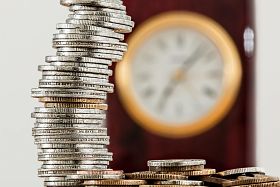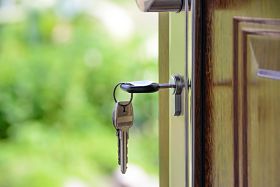Where do I Begin?
So first things first, why do you want to invest? Having a clear picture of what you want to achieve will ensure a much higher level of success.
Do you have anything to start with, capital or cash/deposit, or are you starting from scratch? Everyone starts somewhere, don’t worry if you have nothing in the bank – you have begun educating yourself and finding out how to do it – your on the way!
Bad Debt
 If you have any outstanding bad debts like car loans, credit cards, store cards et. Pay them down and get rid of any that are not important. A credit card will be taken to be at its full capacity for banks/lenders assessment of your borrowing capacity even if they are paid off. Because basically, if you got multiple bills in and did not have the funds to cover it – you would pay them on your credit card.
If you have any outstanding bad debts like car loans, credit cards, store cards et. Pay them down and get rid of any that are not important. A credit card will be taken to be at its full capacity for banks/lenders assessment of your borrowing capacity even if they are paid off. Because basically, if you got multiple bills in and did not have the funds to cover it – you would pay them on your credit card.
What next….. Starting a Goal Plan
If you do have something saved up, what next……. Work out how much you can borrow so you are researching relevant properties and utilising your time effectively. Research is the key – understand the market you are dealing with, well.
Goal Plan
Write a Goal Plan – What you want to achieve, over what time frame and what steps do you need to take to implement it, so it is achievable, one step at a time…..more on that topic soon…
Some people invest in property for the short term, buy a property,  renovate it (add equity) and the re-sell it. Yes, some people make a lot of money out of this type of property investment. But most of us have full-time jobs (yes renovating can be done around that, we did that). Some of us have kids (yep, had them too). You have to do lots of research – easy enough you say. But that type of investment is based on a fast moving market (that is not to say there are not opportunities to make money in this way in any market, but as a rule this is not why people invest in property). Mainly because whether we like it or not, it costs a lot of money to get in and out of real estate. It is not exactly a liquid asset, like shares – which you can get on the internet, hit sell and in the next couple of days – money is in your account.
renovate it (add equity) and the re-sell it. Yes, some people make a lot of money out of this type of property investment. But most of us have full-time jobs (yes renovating can be done around that, we did that). Some of us have kids (yep, had them too). You have to do lots of research – easy enough you say. But that type of investment is based on a fast moving market (that is not to say there are not opportunities to make money in this way in any market, but as a rule this is not why people invest in property). Mainly because whether we like it or not, it costs a lot of money to get in and out of real estate. It is not exactly a liquid asset, like shares – which you can get on the internet, hit sell and in the next couple of days – money is in your account.
Costs Involved
 With property there are costs, big costs, which you can’t avoid (trust me I have looked!) like:
With property there are costs, big costs, which you can’t avoid (trust me I have looked!) like:
- Stamp Duty (different states have different stamp duty requirements)
- If you don’t have enough equity – mortgage insurance (try and have 20% of the purchase price and costs saved, or in equity, if you want to avoid Lenders Mortgage Insurance)
- solicitors fees and searches – again differs dramatically even within the same state
- bank application fees (can generally get around that one)
- land titles registration fees – that is just to get it (buy the property)
Then you need to add the equity/profit, by way of renovation or other fees associated with sub-dividing/re-zoning, slide and divide etc.
Then comes time to sell it,
- marketing / advertising it for sale
- agents commission
- more bank release fees (hopefully no break fees if it is set up properly)
- Hopefully No Capital Gains Tax issues
Anyway, the point being if you can’t add at least $50,000.00 on top of an average $300,000.00 property then the exercise is one of experience not profit.
Long Term Investment
Property is a long term investment. Those of you, who have experienced owning property as an investment through the GFC, and it’s not over yet, will understand this. You will also  understand, how important it was to prepare for the long haul and not put yourself in a position where you may be forced to sell. Especially, at a time that could be devastating financially, to your portfolio. Sometimes this is unavoidable due to sickness, injury, death (pretty final that one) but there are also ways to protect you in those circumstances or the loved ones left behind…more on that later.
understand, how important it was to prepare for the long haul and not put yourself in a position where you may be forced to sell. Especially, at a time that could be devastating financially, to your portfolio. Sometimes this is unavoidable due to sickness, injury, death (pretty final that one) but there are also ways to protect you in those circumstances or the loved ones left behind…more on that later.
Don’t go shopping Hungry!
You know how people say – don’t go shopping while your hungry or you will buy more than you originally budgeted for. Well, when buying property the most important thing (so you don’t buy more than you bargained for) is doing your research before you start looking. Area, sales history, current rental prices, developments being built, shops, services etc. Leave your emotions at home (they don’t form part of successful investing strategies). You are not there to fall in love with the property, you are not cooking mum’s roast lamb in the kitchen or inviting friends over to enjoy the outdoor entertaining area.
What needs to be done?
What money needs to be spent on it, to have it ready to make an income for you? Can any improvements be made to increase that income amount? Are there any nearby developments or vacant blocks of land that could impact on your new investment? (parking issues, construction time frames, what is being built – ie. a prison = bad, Is there something that can be done to limit the impact? (barbed wire, new fencing etc) Of course the last two are true but a more dramatic example.
Can you do something about it?
We have had an instance, where a government department built a community help office at the rear of one of our properties. Changes had to be made to stop the “pedestrian passage/walk throughs. Also, the litter and congregation of people on our common property – which was affecting all the tenants in the block. In some cases, making them move out. New colorbond fencing was built across the back boundary. This re-directed the pedestrian traffic back to the street frontage of the new development/office. It created harmony again for the unit block that was affected. Resulting in the occupants being happy and tenancies secured again. An unexpected expense. Yes, but a great outcome for a relatively small outlay to restore happiness and protect our investment income.
Summary
The thing to remember, in every market there is a good buy available. There is no time like present to begin your investment portfolio, but only after you have done your research.
Look at how much time people spend researching that new Digital LCD TV they want to buy. Or, a new car with all the extras. It is astonishing, the amount of detail people look at for these types of purchases. They know all the specs, spend time getting the best price, negotiate it down even more. Feel so proud when it comes home and its theirs! Any time you invest in research when buying a property, has the potential to save you a lot more than a few hundred dollars.
First Step of Getting started investing in Real Estate
Know what you want to achieve and why you are doing it. This way you can continually re-assess if the property/properties are performing how they need to. Ensuring you reach your goal quicker.
Some great guides you may want to check out 8 steps to getting started in property 7 smart moves when buying your first investment property
Happy Investing …




Comment here